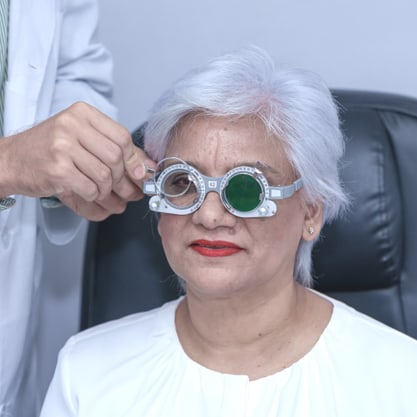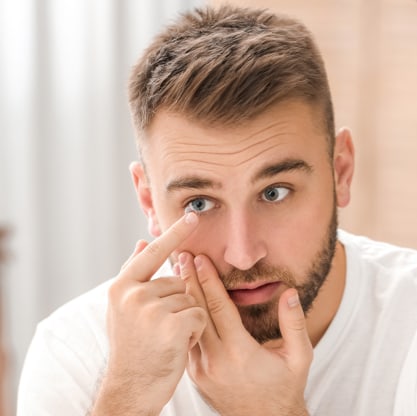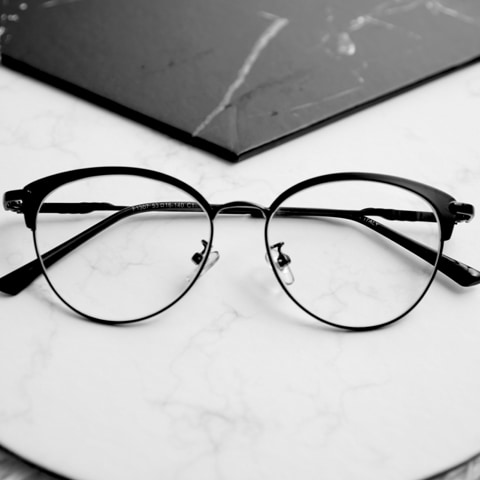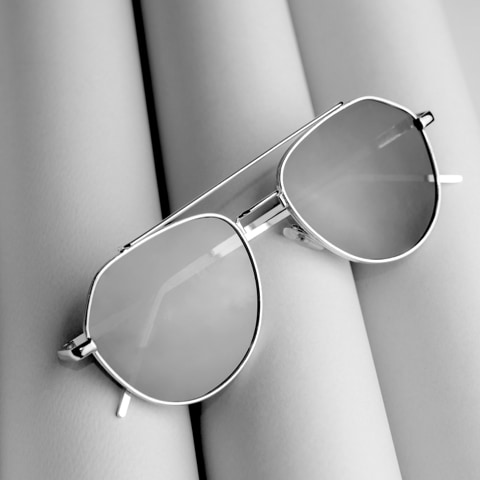Floaters drifting across your vision can be unsettling, while the discomfort of dry eyes may feel almost unbearable. While it’s possible—and even common in some cases—to experience both conditions simultaneously, dry eyes don’t directly cause floaters and vice versa. One might wonder if dry eyes can cause floaters because they can share causes like aging or eye injury.
Fortunately, you can ignore floaters in many cases, and dry eyes are typically relieved with over-the-counter (OTC) solutions like eye drops or home remedies like a warm compress. But if you’re experiencing consistent and uncomfortable symptoms from your dry eyes or the floaters are affecting your vision, it’s essential to consult your eye doctor for tailored advice.
What Are Dry Eyes & What Causes Them?
Dry eyes occur when your eyes don’t produce enough tears, or when the tear composition isn’t adequate to keep your eyes properly lubricated. Tears play an essential role in maintaining eye comfort and clarity. You may experience dryness, irritation, burning sensations, or even blurred vision with insufficient eye lubrication.
The symptoms of dry eyes can range from mild discomfort to chronic irritation, making it essential to identify and address any potential triggers early.
Common Causes of Dry Eyes:
Dry eyes have several different causes, ranging from things we can control to things we can’t.
- Prolonged screen time: Staring at digital screens reduces blink rates, which can lead to less tear distribution on the eye’s surface
- Aging: Tear production usually naturally decreases as we age
- Environmental factors: Wind, smoke, and dry climates (including air conditioning indoors) can affect tear evaporation
- Contact lenses: Overuse of contact lenses can disrupt tear film and cause discomfort
- Medical conditions: Autoimmune diseases like Sjögren’s syndrome or rheumatoid arthritis may contribute to dry eye problems
- Medications: Certain drugs, such as antihistamines, beta-blockers, or antidepressants, may reduce tear production
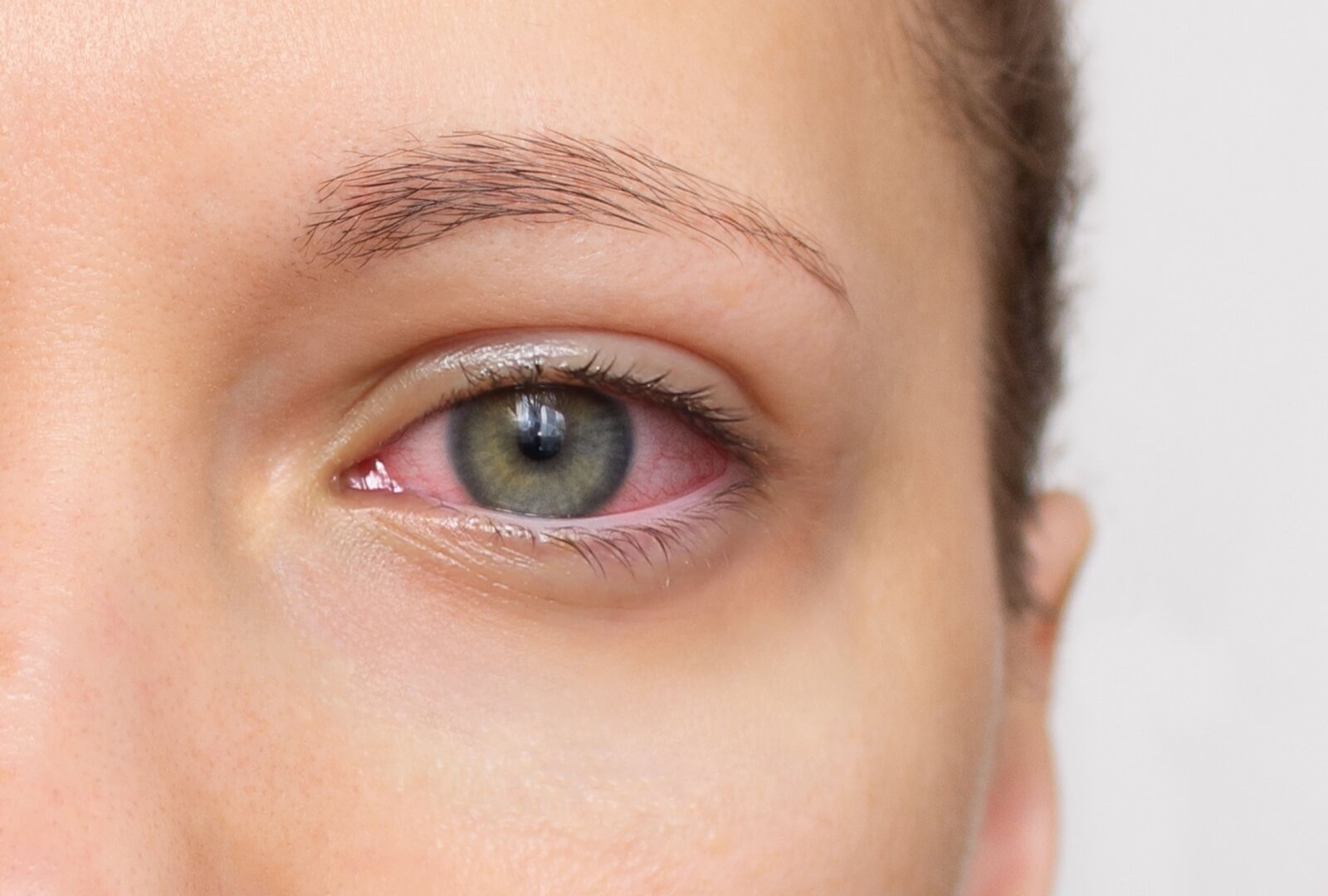
What Are Eye Floaters & Why Do They Happen?
Floaters are tiny specks, strings, or cobweb-like shapes that drift across your vision, particularly when looking at a bright background like the sky or a white wall. Changes in the vitreous gel—the gel-like substance within your eye—often happen with age.
Key Causes of Floaters:
- Aging: The vitreous gel within the eye shrinks and becomes more liquid-like. Tiny fibres in the gel clump together, casting shadows on the retina
- Vitreous detachment: The vitreous can detach from the retina with age, increasing the likelihood of floaters
- Eye injuries: Trauma to the eye can lead to floaters
- Inflammation: Conditions like uveitis (inflammation in the eye) can prompt the appearance of floaters
- Retinal tears or detachment: Floaters accompanied by flashes of light could signal a retinal tear or detachment and require immediate medical attention.
While floaters are typically harmless, they can become a cause for concern if they suddenly increase in size or number.
Are Dry Eyes & Floaters Connected?
While there’s no direct link between the two conditions, here’s what we know about their relationship:
- Shared symptoms: Both dry eyes and floaters can cause visual disturbances, leading some to associate them with one another
- Aging as a common factor: Both conditions are more common as people age, which may explain why they often coexist
- Indirect impact: While dry eyes do not directly cause floaters, untreated dry eye symptoms—such as irritation or light sensitivity—may draw more attention to existing floaters in your vision
It’s essential to recognize that dry eyes and floaters are separate conditions with distinct causes. But addressing one can contribute to overall eye comfort and health, potentially alleviating some of the inconvenience associated with the other.
When Should You Seek Professional Help?
If you are concerned about floaters or are experiencing symptoms of dry eye, be sure to visit your optometrist. Specific symptoms warrant professional evaluation to rule out underlying problems or conditions. An early diagnosis can make a huge difference in managing potential complications and preserving your vision and eye health. You should contact your eye doctor if you experience:
- Chronic dry eye symptoms that do not improve with home treatments
- Flashes of light, shadows, or partial vision loss
- Pain or swelling in your eyes
- A sudden and significant increase in floaters
Any of these things can suggest a serious underlying problem that requires medical attention to prevent complications.
Keep an Eye on Your Health
Proactively managing your eye health through simple lifestyle adjustments, regular check-ups, and knowing when to seek medical advice can make all the difference when you’re experiencing dry eyes, floaters, or anything else out of the ordinary.
Contact our professional team at Sage Eyecare if any of the symptoms we discussed above impact your daily life. We’re happy to book you an appointment with one of our experienced eye doctors who can examine your eyes, review your symptoms, and offer tailored advice or treatment suggestions.




